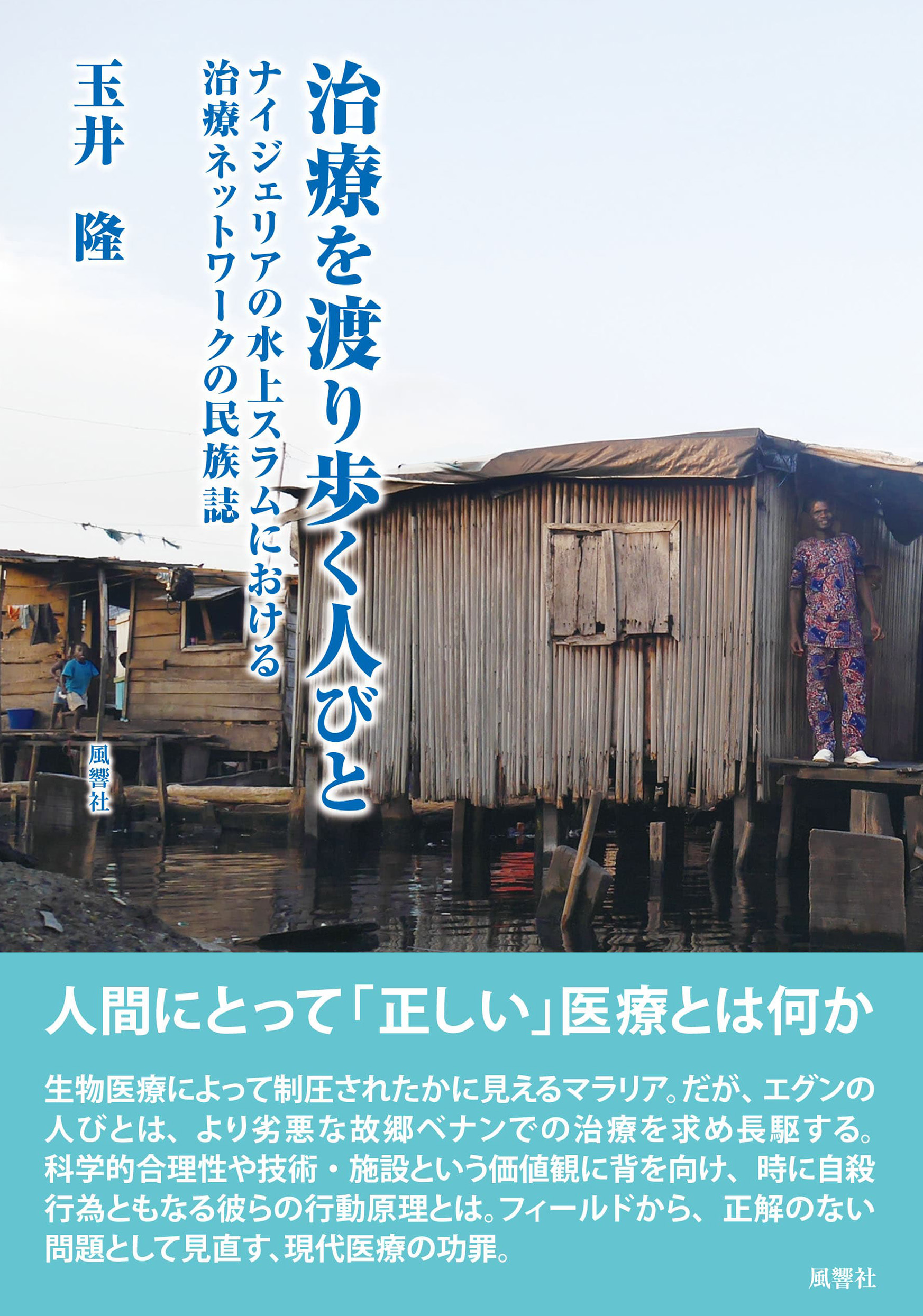
Title
Chiryou wo watariaruku hitobito (People in search of treatment - An ethnography of therapy networks in Nigeria’s floating slums)
Size
300 pages, A5 format
Language
Japanese
Released
March 25, 2020
ISBN
9784894891579
Published by
Fukyosha Publishing Inc.
Book Info
See Book Availability at Library
Japanese Page
This book examines people’s behaviors and social relations when searching for malaria treatment in the era of global health. The subject of study is an ethnic group known as the Egun, who live in the internationally-known floating slum of Makoko, Nigeria. Taking an ethnographic approach, this book aims to clarify the behavioral principles and processes by which the Egun people have formed social relations to cope with malaria.
Public health aid workers and researchers have until recently assumed that people would trust biomedical services and proactively use them, as long as professionals can provide them appropriately. However, this book clarifies through case studies that in seeking to cope with illness, people are more concerned with who provides the medical services than with the quality or cost of those services; specifically, people emphasize mutual connections among those who are more closely related to them, rather than with other ethnic groups with whom they often have conflicts, even if their services are high in quality and low in economic cost. This study demonstrates that it is essential to take into account the specific social relations in the relevant community when considering policy responses to public health issues.
This book is important for two main reasons. First, it presents a unique case for African area studies. This book studies Lagos, the largest city in Sub-Saharan Africa, with a population of 20,000,000 people, and raises many problems concerning public health and urban poverty. However, due to security concerns, there is little literature on ethnographic research in this region. Moreover, Makoko is one of the largest and most visually obvious floating slums in Lagos, and is a “famous” slum reported on frequently around the world, including in Japan. However, there are no research results based on detailed field surveys in Makoko.
Secondly, this book offers development aid workers, including medical practitioners, new insights into public health issues from an anthropological point of view. Many of them have not been able to elucidate, in much detail, the social and cultural aspects of people’s behavior and perceptions of illness on a local level. Consequently, it is assumed that the poor are willing to use affordable and quality health services if they are available. This book overturns these assumptions held by healthcare providers and aid workers, and elucidates in detail how and why people place special emphasis on mutual relations rather than on the costs of treating an illness.
(Written by: TAMAI Takashi / September 28, 2021)



